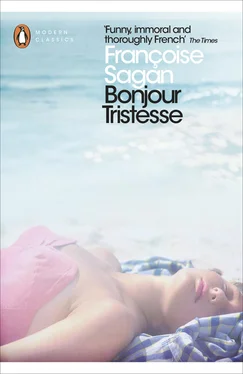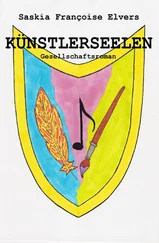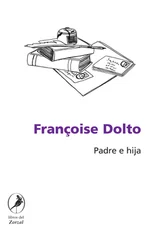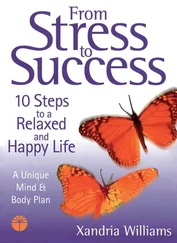Turning her back on me, she set off towards the house, walking as if unconcerned. In my consternation I was nailed to the spot. She meant what she said. Any arguments or denials on my part would be met by that aloofness of hers that was worse than contempt, suggesting that I did not exist or that I was something to be quashed, and not myself, Cécile, whom she had always known, that it was someone else and not me whom she could have contemplated punishing in this way. My only hope lay in my father. He would react as he always did: ‘Who is this boy, kitten? Let’s hope he’s handsome and fit. Be on your guard against scoundrels, girly.’ He just had to react in that way, otherwise my holiday would be over.
Dinner was a nightmare. At no time had Anne said to me: ‘I won’t mention anything to your father, I’m not a carrier of tales. But you must promise me to work hard.’ That kind of bargaining was alien to her. I was glad about that but at the same time resentful towards her, for if she had been like that it would have allowed me to despise her. She steered clear of that mistake as of others, and it was only after the soup course that she appeared to remember the incident. ‘I’d like you to give your daughter some sensible advice, Raymond. I came across her in the wood with Cyril this evening and they seemed to be on the very best of terms.’
My father tried to make a joke of this, poor man.
‘What’s this you’re telling me? What were they doing?’
‘I was kissing him,’ I insisted forcefully. ‘Anne thought …’
‘I thought nothing at all,’ she interrupted. ‘But I do think it would be a good idea if she were to stop seeing him for a while and do some work on her philosophy.’
‘Poor little thing,’ said my father. ‘After all, Cyril’s a nice boy, isn’t he?’
‘Cécile is also a nice little girl,’ said Anne. ‘That’s why I’d be heartbroken if anything were to happen to her. And considering the complete freedom that she has here, and the fact that she’s constantly in that boy’s company and that they have nothing much to do, something happening to her seems inevitable to me. Does it not to you?’
At those words ‘does it not to you?’ I looked up, while my father, very vexed, lowered his eyes.
‘You’re probably right,’ he said. ‘Yes, after all, you ought to do some work, Cécile. You don’t want to have to redo your philosophy, do you?’
‘What do I care?’ I replied tersely.
He looked at me and then immediately looked away again. I was thoroughly disconcerted. I realized that insouciance is the one thing that can provide inspiration for our lives and yet have no argument to offer in its own defence.
‘Come on, now,’ said Anne, taking hold of my hand across the table. ‘You’re going to swap being a wild creature of the woods for being a good scholar, just for a month. That’s not so serious, is it?’
They were both looking at me and smiling; from their point of view it was obvious. I gently withdrew my hand.
‘Yes,’ I said, ‘it is serious.’
I said it so softly that they either did not hear me or did not choose to hear. The next morning I came across a sentence from Bergson that took me several minutes to understand.
However disparate cause and effect may initially appear to be, and although a rule of conduct is far from being a pronouncement on the nature of things, it is always through contact with the creative principle in the human species that one feels oneself drawing the strength to love humanity. 8
I repeated this sentence over to myself, quietly at first, so as not to get worked up over it, then out loud. I rested my head in my hands and I studied the sentence closely. I finally understood it and I felt just as unmoved and powerless as when I had read it the first time. I was unable to continue. I studied the subsequent lines with the same concentration and in the same well-disposed way and suddenly something like a tempest rose up within me and threw me on to the bed. I thought of Cyril who was waiting for me in the sun-drenched inlet, I thought of the gentle rocking of the boat and of the taste of our kisses, and I thought of Anne. What I was thinking made me sit up on my bed, my heart beating fast, and I said to myself that it was stupid and monstrous, that I was nothing but a spoilt, lazy child and that I had no right to think the way I did. So it was in spite of myself that I continued with my reflections. I reflected that she was detrimental to us and dangerous and that she had to be got rid of. I remembered the breakfast that I had just sat through with gritted teeth. I had been appalled and disconcerted by my sense of resentment, which was an emotion that I despised and ridiculed myself for ever feeling. Yes, that was what I held against Anne: she prevented me from liking myself. I was, by my very nature, made for happiness and affability and light-heartedness, but because of her I was entering a world of reproaches and guilt, a world in which I was getting lost because I was not used to introspection. And what was she bringing me? I took stock of how strong she was: she had wanted my father and she had got him; she was gradually going to make of us the husband and daughter of Anne Larsen, which meant that we would become civilized, well-mannered, happy people. For she would make us happy. I could well imagine how easily we, unstable creatures that we were, would yield to the attraction of having structure in our lives and of not having to shoulder responsibility. She was much too efficient. My father was already growing away from me. I was obsessed, tortured, by the embarrassed expression he had had at table and by how he had turned his face away. It made me want to weep when I remembered how we used to be in league with each other, how we would laugh together as we drove back home at dawn through the deserted streets of Paris. All that was over. I in my turn was going to be influenced, reshaped and given direction by Anne. I would not even mind. She would act with intelligence, ironic humour and gentleness. I was incapable of resisting her. In six months I would no longer even want to.
I absolutely had to pull myself together, I had to get my father and our old way of life back. Those two merry, mixed-up years that I had just spent, those two years that I had been so quick to disown the other day, suddenly appeared to me decked out in all their charm. I had been free to think, to think the wrong thoughts or not to think very much at all; I had been free to choose my own life, to choose myself. I cannot say that I had been free ‘to be myself’ because I was merely putty, but I had been free to refuse to be moulded.
I know that it would be possible to ascribe complicated motives to this change in me, that it would be possible to endow me with magnificent complexes, such as an incestuous love for my father or an unhealthy passion for Anne. But I know the real causes: the heat, Bergson, Cyril or at least the absence of Cyril. I thought about this all afternoon as I passed through a succession of states of mind that were all unpleasant but all the result of this one realization, that we were at Anne’s mercy. I was not accustomed to reflecting on things, it made me irritable. At table, as had been the case in the morning, I did not open my mouth. My father felt obliged to make a joke of it:
‘That’s what I like about young people, their enthusiasm, their conversation …’
I gave him a fierce, harsh look. It was true that he liked young people, and to whom else had I talked but to him? We had talked about everything, about love, about death, about music. Now he himself was abandoning me and rendering me defenceless. I looked at him and thought: ‘You don’t love me as you used to. You are betraying me,’ and I tried to make him understand this without actually speaking. I was in full dramatic mode. Becoming suddenly alarmed, he returned my look, understanding perhaps that it was no longer a game and that our relationship was in danger. I saw him grow rigid, as if questions were occurring to him. Anne turned to me.
Читать дальше












